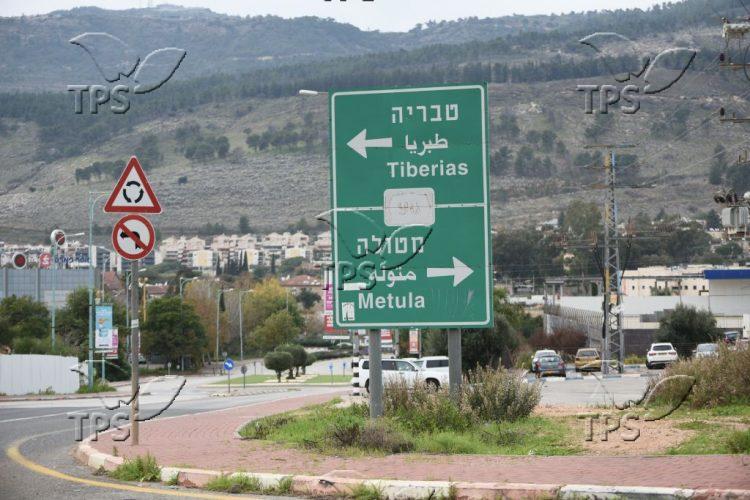As Lebanon Ground War Looms, Israel Says 68,000 Northern Residents Displaced From Homes
Jerusalem, 29 September, 2024 (TPS-IL) -- Against the backdrop of a likely ground invasion of Lebanon, the Israeli government said on Sunday that 68,000 residents of northern communities remain displaced by Hezbollah rocket fire.
Of that number, 53,113 evacuees are being supported in various communities and another 15,599 staying in hotels across the country, according to statistics released by the Ministry of Tourism. The total cost of the evacuation so far has reached 8.64 billion shekels ($2.34 billion), with 5.46 billion shekels ($1.48 billion) allocated for hotel accommodations. An additional 3.182 billion shekels ($860 million) was provided directly to evacuees in the form of living grants.
“The individual and sensitive treatment of the evacuees helped to strengthen the resilience of the home front in the protracted campaign that Israel is waging,” said Tourism Minister Haim Katz.
Residents of northern Israel were forced to evacuate their homes when Hezbollah began launching rockets and drones in October. The terror group has launched more than 9,300 rockets and drones, killing 49 people on the Israeli side.
Hezbollah leaders have said they will continue the attacks to prevent Israelis from returning to their homes.
Israel’s official war goals include securely returning northern residents to their homes.
Israeli officials have been calling for Hezbollah to be disarmed and removed from southern Lebanon in compliance with UN Security Council resolution 1701, which ended the 2006 Second Lebanon War.
The crisis escalated with Israel’s assassination of Hassan Nasrallah, Hezbollah’s leader, in an airstrike in Beirut on Friday.
Devastated Tourism Industry
The Ministry’s figures also noted the war’s devastating effects on the tourism industry. The Ministry noted an estimated loss of 18.7 billion shekels ($5.06 billion) from the decline in international tourism and another 756 million ($204 million) lost from domestic tourism. The closure of hotels and tourist attractions in northern Israel exacerbated these losses.
The number of tourists entering Israel has sharply declined. When the war began, Israel was on track to surpass its pre-pandemic tourist numbers, with projections aiming to break the record of 4.5 million visitors set in 2019. However, in 2023, only 3 million tourists entered the country. Since the beginning of the war, about 853,000 people have entered Israel on tourist visas.
The outlook for 2024 remains bleak, with an estimated total of one million tourists by year’s end, based on current arrival rates of 80,000 to 100,000 visitors per month.
In response to the economic downturn, the Tourism Ministry allocated 200 million shekels ($54 million) to rehabilitate hotels that accommodated evacuees and an additional 70 million shekels ($18.9 million) to support incoming tourism organizers. Furthermore, businesses impacted by more than a 25% reduction in revenues — particularly those outside the immediate conflict zones, such as bed-and-breakfasts and campgrounds — are now eligible for extended compensation.
Encouraging signs of recovery have emerged, with many businesses submitting grant requests to expand hotels. In 2023, grants worth 128 million shekels ($34.6 million) were approved for the construction of over 2,100 rooms. Since the war’s onset, seven new hotels have opened, adding 765 rooms to Israel’s tourist capacity.







